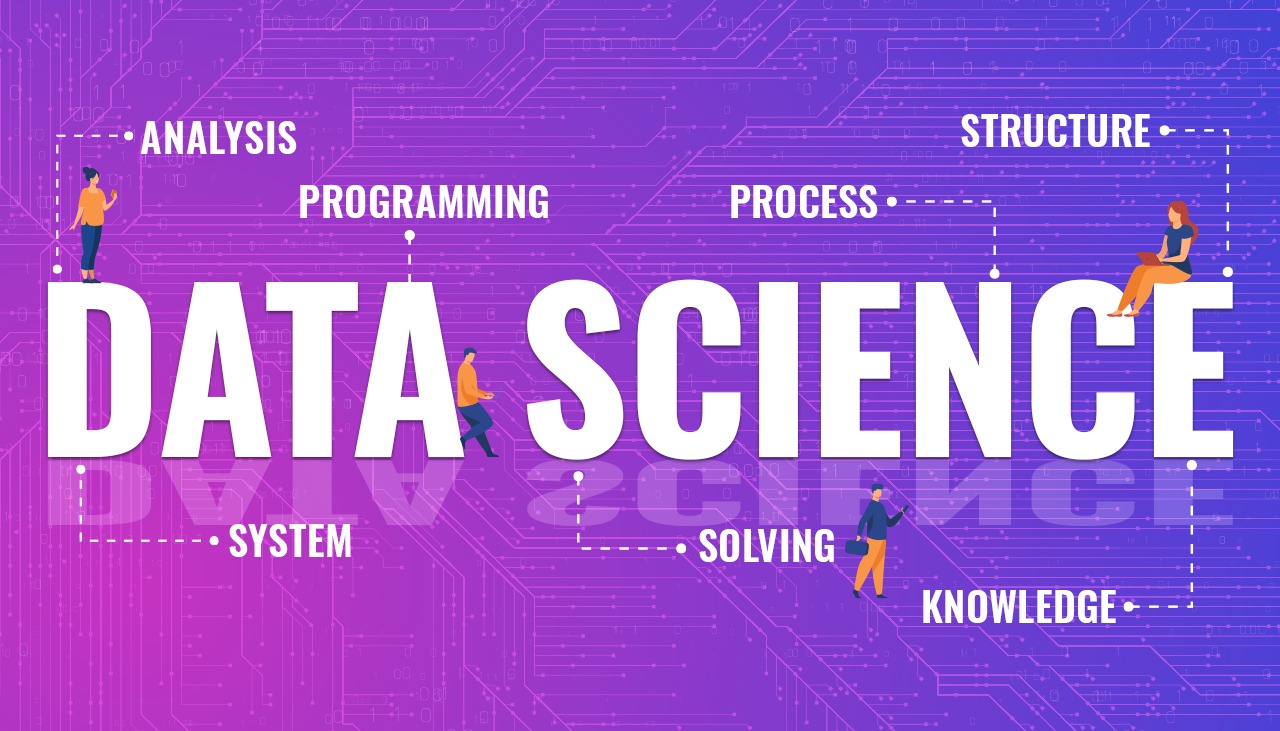software development
Showing (15)
Software Development
Advanced Cybersecurity
In today's interconnected world, where data is the new currency, cybersecurity h
Executive
₦500,000 Immersive
₦300,000 Online
₦250,000
View Course
Software Development
Full Stack Web Development
Embark on a comprehensive journey into full-stack web development with our inten
Executive
₦250,000 Immersive
₦150,000 Online
₦80,000
32 Lessons
View Course
Software Development
Front End web Development
Embark on an immersive journey into the world of front-end web development with
Executive
₦180,000 Immersive
₦120,000 Online
₦80,000
View Course
Software Development
Back end Web Development
Embark on an advanced journey into back-end web development, the backbone of dyn
Executive
₦200,000 Immersive
₦125,000 Online
₦90,000
View Course
Software Development
Word Press
Embark on an immersive journey into front-end web development, the art of crafti
Executive
₦200,000 Immersive
₦100,000 Online
₦75,000
View Course
Software Development
Laravel
Laravel, a powerful PHP framework, offers developers an elegant and efficient so
Executive
₦200,000 Immersive
₦120,000 Online
₦80,000
View Course
Software Development
Django
Django, a high-level Python web framework, empowers developers to build robust,
Executive
₦200,000 Immersive
₦120,000 Online
₦80,000
View Course
Software Development
Python
Embark on a transformative journey into Python programming with our comprehensiv
Executive
₦200,000 Immersive
₦120,000 Online
₦80,000
View Course
Software Development
Node JS
Node.js, a powerful JavaScript runtime, has become a cornerstone of modern web d
Executive
₦200,000 Immersive
₦120,000 Online
₦80,000
View Course
Software Development
Cloud Computing
Embark on a transformative journey into the world of cloud computing with our co
Executive
₦250,000 Immersive
₦150,000 Online
₦90,000
View Course
Software Development
Cyber Security
Embark on an intensive journey into the world of cyber security with our compreh
Executive
₦250,000 Immersive
₦150,000 Online
₦100,000
View Course
Software Development
Server Management
Server management is crucial for maintaining the performance, security, and reli
Executive
₦250,000 Immersive
₦150,000 Online
₦120,000
View Course
Software Development
Android SDK and Java
Dive into the dynamic world of Android app development with our comprehensive co
Executive
₦250,000 Immersive
₦180,000 Online
₦150,000
View Course
Software Development
Flutter
Embark on an exciting journey into mobile app development with our comprehensive
Executive
₦250,000 Immersive
₦150,000 Online
₦100,000
14 Lessons
View Course
Software Development
React
React, a popular JavaScript library developed by Facebook, is widely used for bu
Executive
₦200,000 Immersive
₦120,000 Online
₦80,000
View Course
design & marketing
Showing (10)
Design & Marketing
Graphic Design
Graphic design is the art and practice of visual communication, encompassing a w
Executive
₦150,000 Immersive
₦100,000 Online
₦80,000
View Course
Design & Marketing
Product Design Ui/Ux
This comprehensive course on product design essentials covers the principles of
Executive
₦180,000 Immersive
₦120,000 Online
₦100,000
View Course
Design & Marketing
2D Animation
Delve into the captivating world of 2D animation and master the art of visual st
Executive
₦250,000 Immersive
₦150,000 Online
₦120,000
View Course
Design & Marketing
3D Animation
Become a Professional 3D Animator with our advanced course designed for aspiring
Executive
₦300,000 Immersive
₦200,000 Online
₦150,000
View Course
Design & Marketing
After Effect
Unlock the full potential of Adobe After Effects and elevate your skills in visu
Executive
₦180,000 Immersive
₦120,000 Online
₦100,000
View Course
Design & Marketing
Game DEVELOPMENT
Embark on an exciting journey into the world of game development with our compre
Executive
₦180,000 Immersive
₦120,000 Online
₦100,000
View Course
Design & Marketing
Video Editing
Dive into the world of professional video editing with our comprehensive course
Executive
₦180,000 Immersive
₦120,000 Online
₦80,000
View Course
Design & Marketing
Digital Marketing
This comprehensive course on digital marketing essentials equips participants wi
Executive
₦150,000 Immersive
₦100,000 Online
₦80,000
View Course
Design & Marketing
Project Mangement
Project management is a critical discipline that ensures projects are completed
Executive
₦180,000 Immersive
₦150,000 Online
₦100,000
View Course
Design & Marketing
Generative AI tools
Generative Artificial Intelligence (AI) is revolutionizing various industries by
Executive
₦150,000 Immersive
₦100,000 Online
₦75,000
View Course
data management
Showing (5)
Data Management
Data Science
Embark on an immersive journey into the dynamic field of data science with our c
Executive
₦400,000 Immersive
₦250,000 Online
₦200,000
View Course
Data Management
Data Analysis
This comprehensive course on data analysis fundamentals equips participants with
Executive
₦250,000 Immersive
₦150,000 Online
₦120,000
View Course
Data Management
statistical analyses with SPSS
Embark on a comprehensive journey into statistical analysis with SPSS, a powerfu
Executive
₦250,000 Immersive
₦150,000 Online
₦100,000
View Course
Data Management
Advanced Excel and VBA
unlock the full potential of data analysis and automation with our advanced cour
Executive
₦180,000 Immersive
₦150,000 Online
₦100,000
View Course
Data Management
Sage 50 Accounting
Embark on a comprehensive journey into Sage 50 Accounting, a leading financial m
Executive
₦150,000 Immersive
₦100,000 Online
₦80,000
View Course
computer aided design
Showing (8)
Computer Aided Design
AutoCAD
Embark on a transformative journey into the world of computer-aided design (CAD)
Executive
₦150,000 Immersive
₦100,000 Online
₦75,000
View Course
Computer Aided Design
ArchiCAD
Embark on a transformative journey into the world of architectural design and bu
Executive
₦150,000 Immersive
₦100,000 Online
₦80,000
View Course
Computer Aided Design
Lumion
Embark on an immersive journey into architectural visualization with our compreh
Executive
₦300,000 Immersive
₦200,000 Online
₦150,000
View Course
Computer Aided Design
STAAD PRO
Embark on an intensive journey into STAAD.Pro, a powerful structural analysis an
Executive
₦250,000 Immersive
₦150,000 Online
₦120,000
View Course
Computer Aided Design
PDMS
This course teaches plant design and modeling using AVEVA Plant Design Managemen
Executive
₦250,000 Immersive
₦150,000 Online
₦120,000
View Course
Computer Aided Design
SOLID WORKS
SolidWorks is a leading computer-aided design (CAD) software widely used by engi
Executive
₦250,000 Immersive
₦150,000 Online
₦120,000
View Course
Computer Aided Design
autoDesk Inventor
Embark on a transformative journey into the world of 3D mechanical design with o
Executive
₦120,000 Immersive
₦100,000 Online
₦100,000
View Course
Computer Aided Design
Revit ArchiCAD
Autodesk Revit Architecture is a leading Building Information Modeling (BIM) sof
Executive
₦150,000 Immersive
₦100,000 Online
₦90,000
View Course
computer fundamentals
Showing (3)
Computer Fundamentals
Computer Basics
Explore the fundamentals of computing and gain essential skills for navigating t
Executive
₦80,000 Immersive
₦50,000 Online
₦40,000
View Course
Computer Fundamentals
NO CODE DEVELOPMENT
No-code development platforms empower individuals and organizations to create so
Executive
₦80,000 Immersive
₦60,000 Online
₦60,000
View Course
Computer Fundamentals
DIGITAL INTELLIGENCE
Embark on a transformative journey into the world of digital intelligence with o
Executive
₦80,000 Immersive
₦60,000 Online
₦60,000
View Course
kids package
Showing (12)
kids Package
Computer Basics for Kids
Explore the fundamentals of computing and gain essential skills for navigating t
Executive
₦0 Immersive
₦45,000 Online
₦40,000
View Course
kids Package
Scratch Programming
Embark on an engaging journey into Scratch programming, a beginner-friendly visu
Executive
₦0 Immersive
₦45,000 Online
₦40,000
View Course
kids Package
Web Designing (Frontend)
Embark on an immersive journey into front-end web development, the art of crafti
Executive
₦0 Immersive
₦45,000 Online
₦40,000
View Course
kids Package
3D Animation (Basic)
Embark on a transformative journey into the realm of 3D animation with our advan
Executive
₦0 Immersive
₦45,000 Online
₦40,000
View Course
kids Package
Graphic Design (Basic)
Graphic design is the art and practice of visual communication, encompassing a w
Executive
₦0 Immersive
₦45,000 Online
₦40,000
View Course
kids Package
Computer Basics
Write the main content here
Executive
₦0 Immersive
₦45,000 Online
₦40,000
View Course
kids Package
Scratch Programming
Write the main content here
Executive
₦0 Immersive
₦45,000 Online
₦40,000
View Course
kids Package
Web Designing (frontend)
Write the main content here
Executive
₦0 Immersive
₦45,000 Online
₦40,000
View Course
kids Package
3D Animation (basics)
Write the main content here
Executive
₦0 Immersive
₦45,000 Online
₦40,000
View Course
kids Package
game development
Write the main content here
Executive
₦0 Immersive
₦45,000 Online
₦40,000
View Course
kids Package
graphics design
Write the main content here
Executive
₦0 Immersive
₦45,000 Online
₦40,000
View Course
kids Package
Python
Write the main content here
Executive
₦0 Immersive
₦45,000 Online
₦40,000
View Course







.png)
.jpg)
.jpg)


.jpg)
.jpg)



.jpg)
.jpg)
.jpg)

.jpg)


.jpg)
.jpg)


.jpg)

.jpg)


.jpg)
.jpg)

.jpg)
.jpg)


.jpg)
.jpg)
.jpg)
.jpg)
.jpg)


.jpg)










